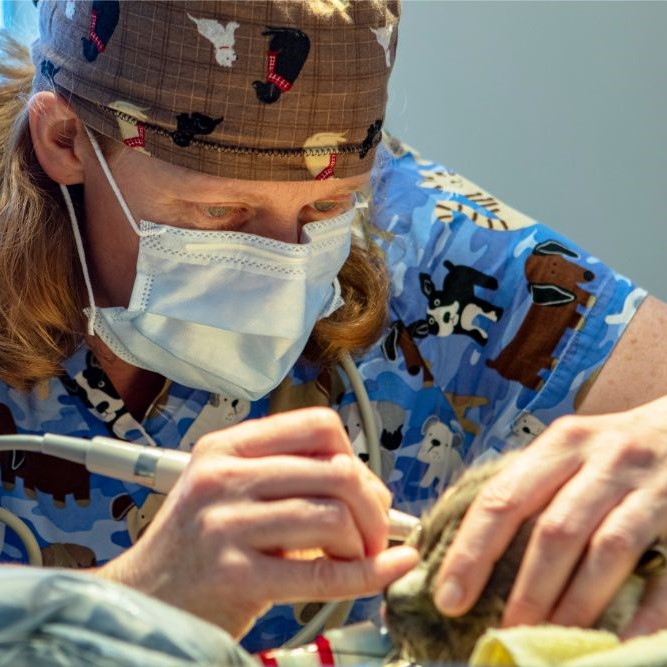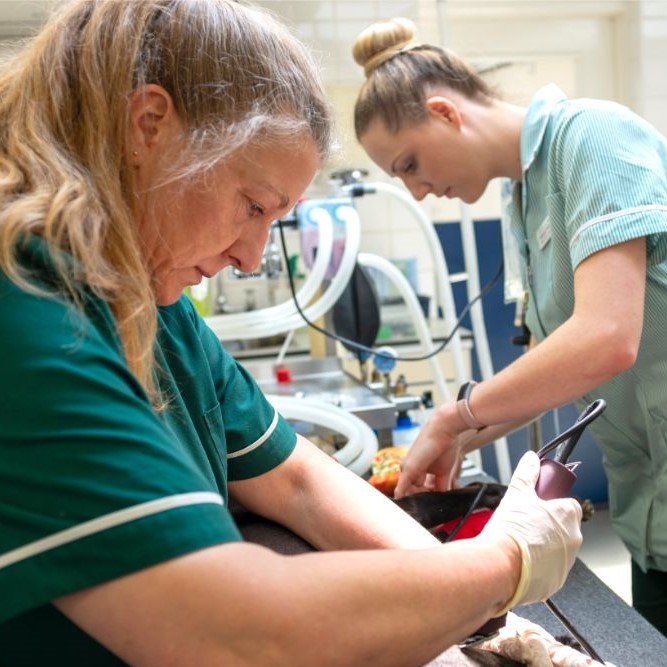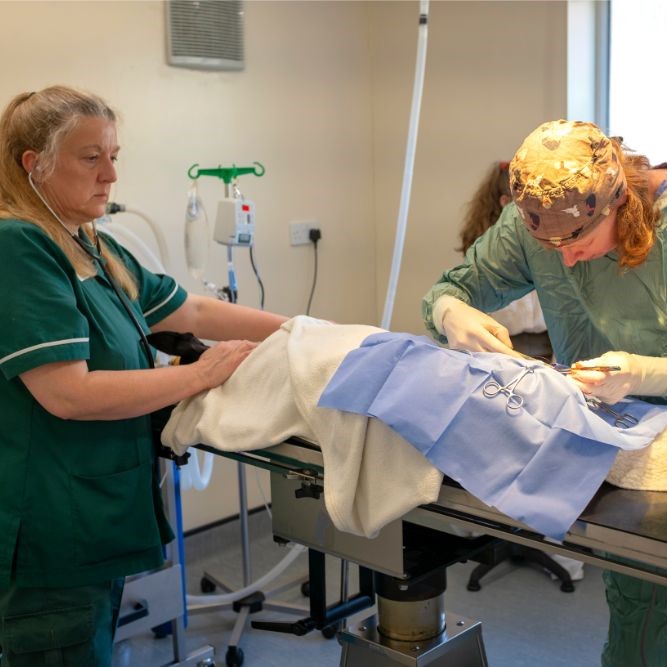SURGERY
Should our vets feel that surgery is in the best interests of your pet, they will discuss the intended procedure in full, including any associated risks. Our vets are experienced surgeons, adept in routine surgeries such as neutering as well as non-elective, complex and emergency surgeries.
We might recommend a pre-anaesthetic blood profile to help us understand the status of a pet’s internal organs, in particular the liver and kidneys which play an integral part in processing the anaesthetic. Fluid therapy (a drip) might also be indicated for certain pets going under anaesthesia in order to support blood pressure. All interventions will be discussed with an owner prior to surgery.

Patients receive a pre-medication which includes a sedative to relax them and pre-emptive pain relief. We place great emphasis on providing appropriate pain relief during a procedure and for as long as necessary post-operatively.
It will usually be necessary to clip some fur from a pet in order to prepare and clean the surgical site, something which is vital for sterility. Every patient under anaesthesia receives one to one attention from an experienced and highly trained vet nurse who, under the direction of the vet, monitors their vital signs, adjusting the anaesthetic agent so that they receive the precise amount required.
Patients are monitored carefully post-operatively by qualified nurses and most will return home the same day. Those who require ongoing treatment and monitoring will be transferred to the inpatient care team who will continue to monitor and attend to their every need. See our hospitalisation page for more information.


Orthopaedics
Orthopaedic surgery refers to surgery of the musculoskeletal (bones and muscles) system and includes many complex techniques.
We are delighted to have theatres, equipment and facilities to enable us to carry out procedures in house. We are able to bring visiting Advanced Practitioners.
We are pleased to be able to offer the services of RATA Vets, a group of visiting surgeons who have undergone further training and have Certificates in Surgery, and are RCVS Advanced Practitioners, who can come in for consultations with clients and their pets and to examine them, and to operate when required, and carry out more complicated procedures, such as fracture repairs, and cruciate surgery, and luxating patella surgery. They are also able to comment on radiographs.
